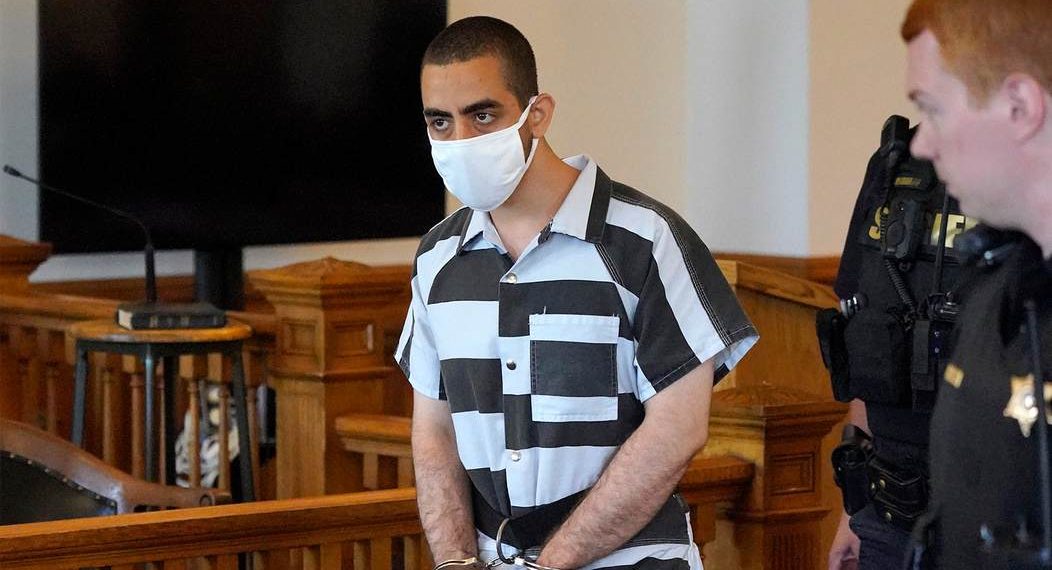When the defendant entered the courtroom, he was dressed respectably in a blue button-down shirt and dark slacks. When his presence was announced, he stood up, said “Good morning,” and gave all present a cheery wave. And thus began one of the most important trials of our age, although everyone involved is doing everything possible to ignore all the reasons why it is so important.
Hadi Matar finally went on trial Tuesday for attempting to murder the novelist Salman Rushdie back in Aug. 2022. There is little, if any, doubt about Matar’s guilt, even though he has pleaded not guilty, for he stabbed Rushdie multiple times in full view of a shocked crowd at the Chautauqua festival. Matar was supposed to have gone on trial in Jan. 2024, but Rushdie wrote a book about the attack, and Matar’s defense attorney, public defender Nathaniel Barone, received a delay in the trial so that he could review the book. It’s hard to fathom how what the victim thought about what happened might affect the guilt of his client, but nevertheless, Barone managed to delay the trial for over a year.
Now that it has begun, both Barone and his opposite number, Chautauqua County District Attorney Jason Schmidt, seem curiously intent on preventing any discussion of Matar’s motive. Matar tried to kill the man who, at the time of the stabbing had carried for 33 years the most famous bounty on his head since the days of the Wild West.
It was on Valentine’s Day, Feb. 14, 1989, that Iran’s Ayatollah Khomeini called for Rushdie to be killed for supposedly blaspheming against Muhammad in his novel “The Satanic Verses.” By 2022, Iran’s bounty on Rushdie’s head was $3 million. Without Khomeini’s death fatwa on Rushdie, Matar wouldn’t have tried to kill him, and there would be no trial. Nevertheless, neither the prosecution nor the defense wants any talk of that as Matar is tried.
Matar himself was upfront about why he stabbed Rushdie. Back in Aug. 2022, he said: “I respect the ayatollah. I think he’s a great person. That’s as far as I will say about that.” Of Rushdie, Matar said: “I don’t like the person. I don’t think he’s a very good person. I don’t like him. I don’t like him very much. He’s someone who attacked Islam, he attacked their beliefs, the belief systems.” Matar isn’t the most articulate person in the world, but what he said was clear enough to establish that he wanted Rushdie dead in accord with Khomeini’s fatwa. […]
— Read More: pjmedia.com
-
Learn the TRUTH about Gold IRAs and how most precious metals companies play dirty.



